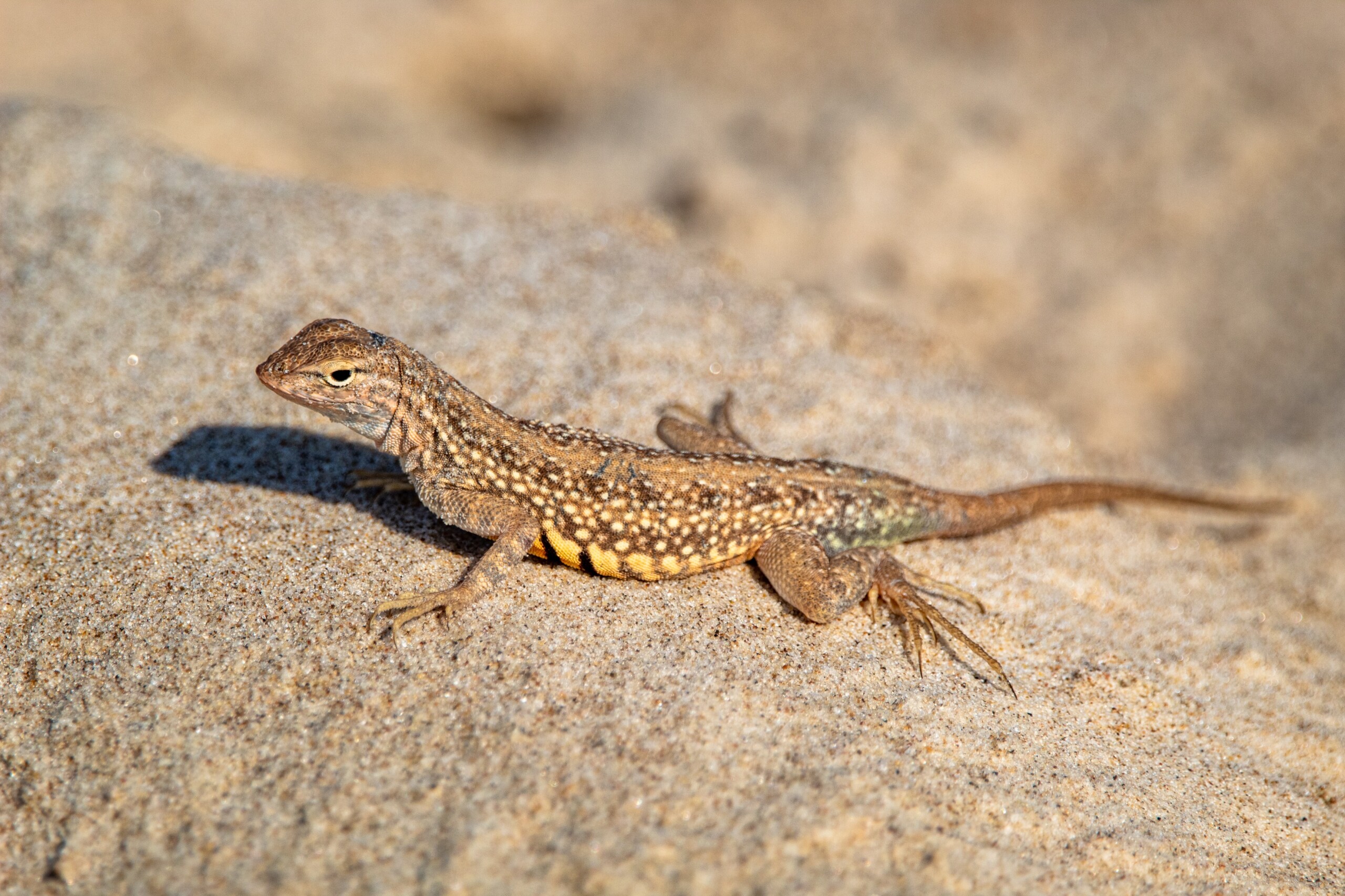Weekly Newsletter | February 22, 2019
Issues
Enviros plan lawsuit over lesser prairie chicken. Yesterday, three groups filed a notice of intent to sue the Interior Department (DOI) and the Fish and Wildlife Service (FWS) for not deciding whether to protect the lesser-prairie chicken under the Endangered Species Act (ESA).
“The Trump administration’s foot dragging is placing these unique, dancing birds at serious risk of extinction,” said Noah Greenwald, endangered species director at the Center for Biological Diversity. “The Endangered Species Act has saved more than 99 percent of the species under its protection. It can save the lesser prairie chicken too, but only if the birds are listed as a threatened or endangered species.”
The lesser-prairie chicken roams portions of New Mexico, Colorado, Texas, Oklahoma and Kansas. Aerial surveys show lesser-prairie chicken populations trending upward in recent years and topping 38,000 birds in 2018. But the survey also raised concerns that drought over portions of the birds’ range could lead to a downturn in 2019.
ESA rollbacks subject to DOI ethics probe. Government watchdog group, Campaign for Accountability, is asking for a probe into whether acting Interior Secretary David Bernhardt violated his ethics pledge when he endorsed rollbacks to protections for endangered fish that would benefit California farmers he represented before joining the Trump administration.
An Interior spokeswoman conveyed Bernhardt’s reliance on guidance from the department’s ethics officials. “Mr. Bernhardt works very closely with the Departmental Ethics Office,” said spokeswoman Faith Vander Voort. “Pursuant to Office of Government Ethics regulations and guidance, he can fully participate in broad matters at the department such as the consideration or adoption of broad policy options directed to the interests of a large and diverse group of persons.”
New bills reorganize Interior priorities, give states more clout in ESA decisions. Under a new spending bill for 2019, the Interior Department (DOI) would receive $95 million less than the current funding level. The bill is also slated to make major changes to the department, including a structural reorganization, addressing the National Park Service’s maintenance backlog, funding climate research and most notably, improving consideration efforts under the Endangered Species Act (ESA).
The bill also directs Fish and Wildlife to work with a variety of local and regional parties to protect various wildlife, including nonfederal entities on “improving voluntary solutions” to conserve the lesser prairie chicken as an alternative to ESA protection.
Appropriators also weighed in on sage grouse, including a measure preventing the DOI Secretary from using appropriated funds “to write or issue” a proposed rule listing the Greater sage-grouse, or its cousin, the Columbia Basin distinct population segment. This would essentially prevent FWS from listing the bird as threatened or endangered.
Lawmakers left out a rider that would have delisted gray wolves.
In another bill out of the Senate this week, Sen. Mike Enzi (R-WY) introduced for the second time legislation intended to ensure that ESA decisions are more reliant on the input of state, local and tribal studies. The Wyoming lawmaker introduced similar legislation last Congress in March 2017.
Further complicating the bill’s future is the fact that the Trump administration’s Fish and Wildlife Service has already voiced concerns about a central element of the three-page “State, Tribal, and Local Species Transparency and Recovery Act.” The controversy arises in a provision of the bill that would automatically designate all data submitted by states, tribes and local governments as meeting the standard of the “best scientific and commercial data available.”
In the News
Greens go after Atlantic seismic testing. E&E News, Sub req’d. A group of conservation organizations today asked a federal court judge to prevent seismic testing in the Atlantic Ocean, the latest step in the ongoing legal battle over offshore oil and gas exploration along the East Coast. The green groups are seeking a preliminary injunction against NOAA Fisheries, which granted incidental harassment permits to five seismic operators. The petition charges that the seismic surveys would include air gun blasting, which they say would violate the Marine Mammal Protection Act, Endangered Species Act and National Environmental Policy Act. The seismic opponents contend that the companies plan to conduct overlapping and simultaneous seismic surveys that could cause irreparable harm to all forms of marine life, from zooplankton to the great whales. Specifically, they warn that seismic blasts could affect the 400 endangered North Atlantic right whales that make the Atlantic their home. Laura Cantral, executive director of the Coastal Conservation League, charged that “the harm seismic blasting will inflict on dolphins and whales can’t be reversed, that’s why it is so important to have a full and open debate in court before allowing boats in the water.” “We have a chance to stop harm before it begins and to prevent the precursor to offshore drilling, something that no coastal communities in South Carolina want,” she said.
Greens out front in litigation over Trump’s emergency move. E&E News, Sub req’d. Environmentalists were among the first to go to court over President Trump’s emergency declaration to fund a wall along the U.S. border with Mexico. The Center for Biological Diversity, Defenders of Wildlife and the Animal Legal Defense Fund filed suit Saturday, accusing Trump of violating the Constitution in his bid to sidestep Congress and access billions of dollars for an assortment of barrier projects along the border. “Trump’s authoritarian attempt to build his destructive border wall is a flagrant abuse of that constitutional structure,” CBD attorney Brian Segee said in a statement over the weekend. “If he gets his way, it’ll be a disaster for communities and wildlife along the border, including some of our country’s most endangered species.” CBD’s complaint, filed in the U.S. District Court for the District of Columbia, joins other lawsuits and threats of legal action stacking up from opponents of the president’s use of emergency powers for the wall. Three Texas landowners and the Rio Grande Valley-based Frontera Audubon Society launched their own litigation over the border wall effort Friday, also accusing the president of exceeding his authority for national emergencies.
Ambitious federal plan to save salmon has big price tag. E&E News, Sub req’d. The federal government this week outlined an ambitious, potentially costly new plan to restore Atlantic salmon in the United States, where rivers teemed with the fish before dams, pollution and overfishing decimated their populations. The Atlantic salmon has declined in the U.S. to the point where the last remaining wild populations exist only in a handful of rivers in Maine. But NOAA and the Fish and Wildlife Service are offering a new recovery plan to bring back those fish, which are listed under the Endangered Species Act. The plan would take decades to fully implement, and it focuses on strategies such as removals of dams, installations of fish passages and increasing the number of salmon that survive in the ocean. It states that the estimated cost is about $24 million per year, not including money federal departments already spend on salmon recovery work. How that money would materialize at this point is unclear. But the plan gives the species a road map to recovery, said Peter Lamothe, program manager for the Maine fish and wildlife complex for FWS. “It gives all of the partners involved in this what to shoot for — what we collectively need to achieve to recover the species,” Lamothe said. “It gives us a path forward.”
Lawmakers scramble to protect sensitive lands. E&E News, Sub req’d. With the president poised to declare a national emergency to secure funding for his border wall with Mexico, lawmakers and environmentalists are concerned about the impact on sensitive lands. Today, the president plans to sign bipartisan spending legislation, which includes $1.375 billion for border barriers, but also vowed to issue an emergency declaration to secure even more for his signature campaign promise (E&E News PM, Feb. 14). Among the potential hot spots created by Trump’s order are five sites in South Texas where Congress opted to bar new pedestrian border wall construction as part of its $333 billion spending package (E&E Daily, Feb. 14). Texas Democratic Rep. Henry Cuellar secured language to prohibit new walls within the National Butterfly Center, Santa Ana National Wildlife Refuge, Bentsen-Rio Grande Valley State Park, La Lomita Historical Park and a tract of land next to the Lower Rio Grande Valley National Wildlife Refuge that will be home to the proposed SpaceX commercial spaceport. Those sites sit in the path of 33 miles of new levee barriers that Congress funded in last year’s $1.3 trillion omnibus spending bill.
Green groups to sue FWS over loss of caribou herd. E&E News, Sub req’d. Environmental groups said yesterday they plan to sue the Fish and Wildlife Service for failing to prevent the recent loss of the last herd of mountain caribou in the Lower 48. The handful of remaining animals were relocated into Canada last November, ending decades of efforts to save the southern Selkirk Mountains herd, which was located in a remote part of northern Idaho and Washington state. The lawsuit would seek to blame the Fish and Wildlife Service for failing to designate protected habitat for the animals. “Fish and Wildlife Service officials sat on their hands for decades while the last wild caribou in the Lower 48 states went extinct,” said Andrea Santarsiere, an attorney at the Center for Biological Diversity, which filed a 60-day notice of intent to sue along with Defenders of Wildlife and the Lands Council. The environmental groups want to establish protected caribou habitat as part of an effort to return the animals in the United States. “With the right protections in place, we can bring them back,” said Jason Rylander, an attorney for Defenders of Wildlife.



